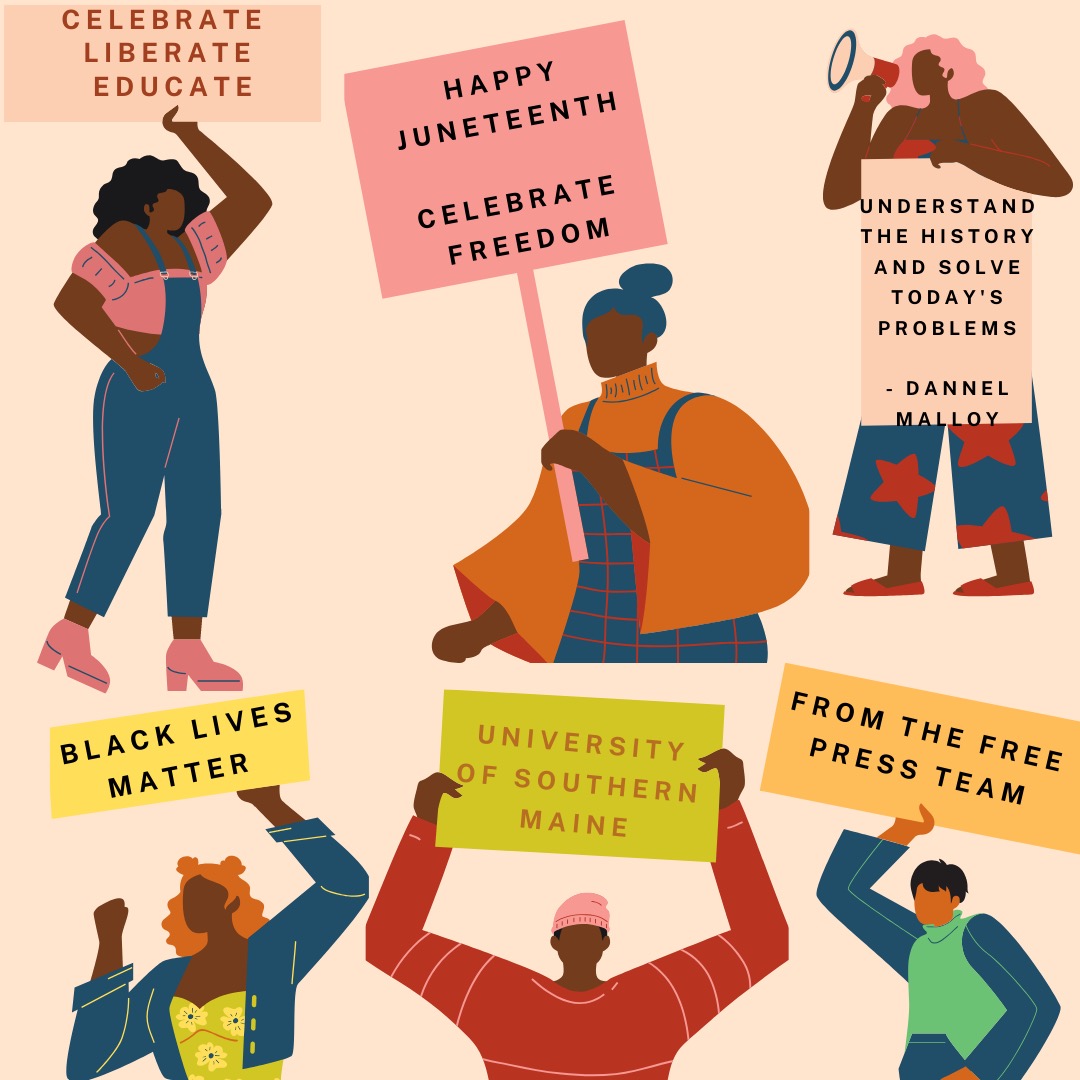By: Zoe Bernardi, Community Editor & Asha Tompkins, Editor-In-Chief
Political uprisings sprout out across the nation and in the city of Portland in order to eradicate racism in the United States. June 19, “Juneteenth,” takes its place in the spotlight. It is a day to celebrate and commemorate the liberation of those who were held as slaves in the U.S.
Chancellor Dannel Malloy in a piece to his UMS colleagues this morning on June 19 addresses the importance of this holiday, stating that his “work today is about rooting out ignorance.”
“I write to call attention to a celebration about which far too many outside of our Black communities are ignorant: Juneteenth,” said Malloy. “Today, we celebrate Freedom Day, commemorating the end of slavery, the day in 1865 when more than 250,000 enslaved Black Americans in Texas learned, finally, of the freedom granted to them two-and-a-half years earlier by the Emancipation Proclamation.”
In addition to the history of this day, these are some important pieces of history that it encompasses.
According to the United States Senate:
- The 13th Amendment abolished slavery in America, and was ratified in 1863.
- The 14th Amendment granted all those born in the United States citizenship and was ratified in 1868.
- The 15th Amendment prohibits “states from disenfranchising voters ‘on account of race, color, or previous condition of servitude,’” it was ratified in 1870.
- The Civil War ended in April of 1865. All under president Abraham Lincoln, who also issued the Emancipation Proclamation in 1862, which states that all enslaved persons shall be made free.
This day had little celebration outside of the African-American community for many decades. It was celebrated with community activities, such as rodeos, fishing competitions, barbecues, picnics and outdoor games like baseball.
Each year, these parties would flourish as more people would come together to honor this day. Elders often told stories to keep the memories alive, to let those who were not allowed to have a voice to finally be heard.
Today, Juneteenth is celebrated to acknowledge the freedom and achievements of Black Americans, to continuously work toward allyship, full equality, having respect for all cultures outside of each person’s own, lifting people up and accepting them for who they are.
“While we will be very deliberate in finding ways to do this in our UMS communities, I hope this is a commitment that every American will make,” said Malloy. “We cannot lose the impact of the moment. Far too many before George Floyd died in vain. Far too many inflection points before this died quietly from lack of resolve among all of us to finally change.”
Present day, nearly 155 years later, the fight for racial equality is still on the forefront as an ongoing issue in America. Only 47 states recognize Juneteenth as a state holiday. The states excluded are Hawaii, North Dakota and South Dakota.
“Today is a day that has deserved much wider celebration far earlier than now. As President Ferrini-Mundy noted in her university message yesterday, in 2011 Maine became the 38th state to call for official recognition of Juneteenth, now done by an annual proclamation from Maine’s Governor,” Malloy said.
In addition, Malloy states that USM will do its own work to “understand that history and solve today’s problems.”
“To that end, I call your attention to a public forum addressing racial injustice that the University of Maine School of Law will present at noon today.”
The Juneteenth Forum was free and open to the public, conducted via Zoom, entitled Racial Injustice: Reimagining Policing and Public Safety.
“I hope you’ll join me in working every day to root out racism,” said Malloy. “I hope, like I will, you’ll put your whole soul in it.”


“Root out racism”.
Sounds like Mao’s call to root out bourgeois elements during the Cultural Revolution. Perhaps some well-publicized struggle sessions might encourage those whose fail to fall in line quickly enough.